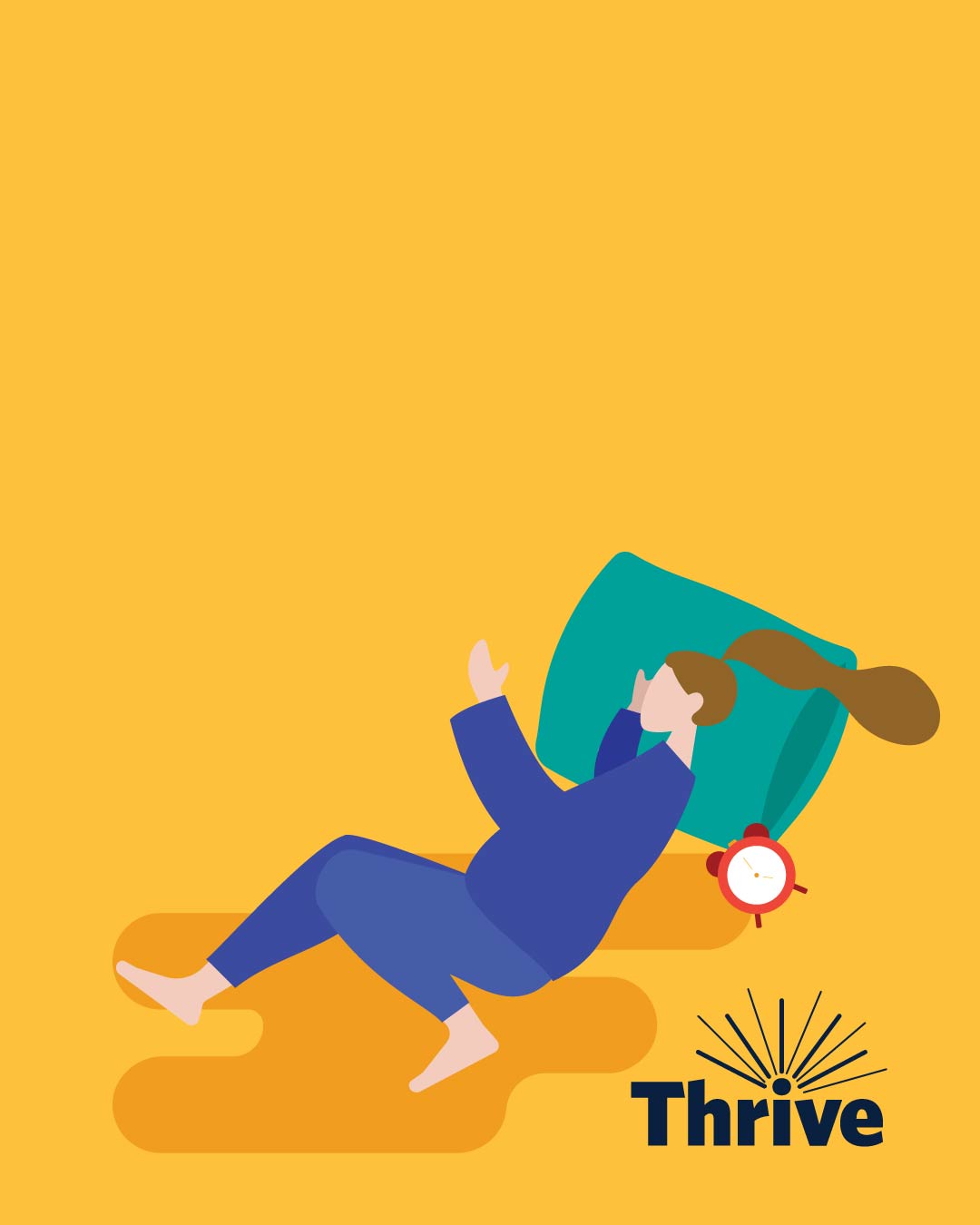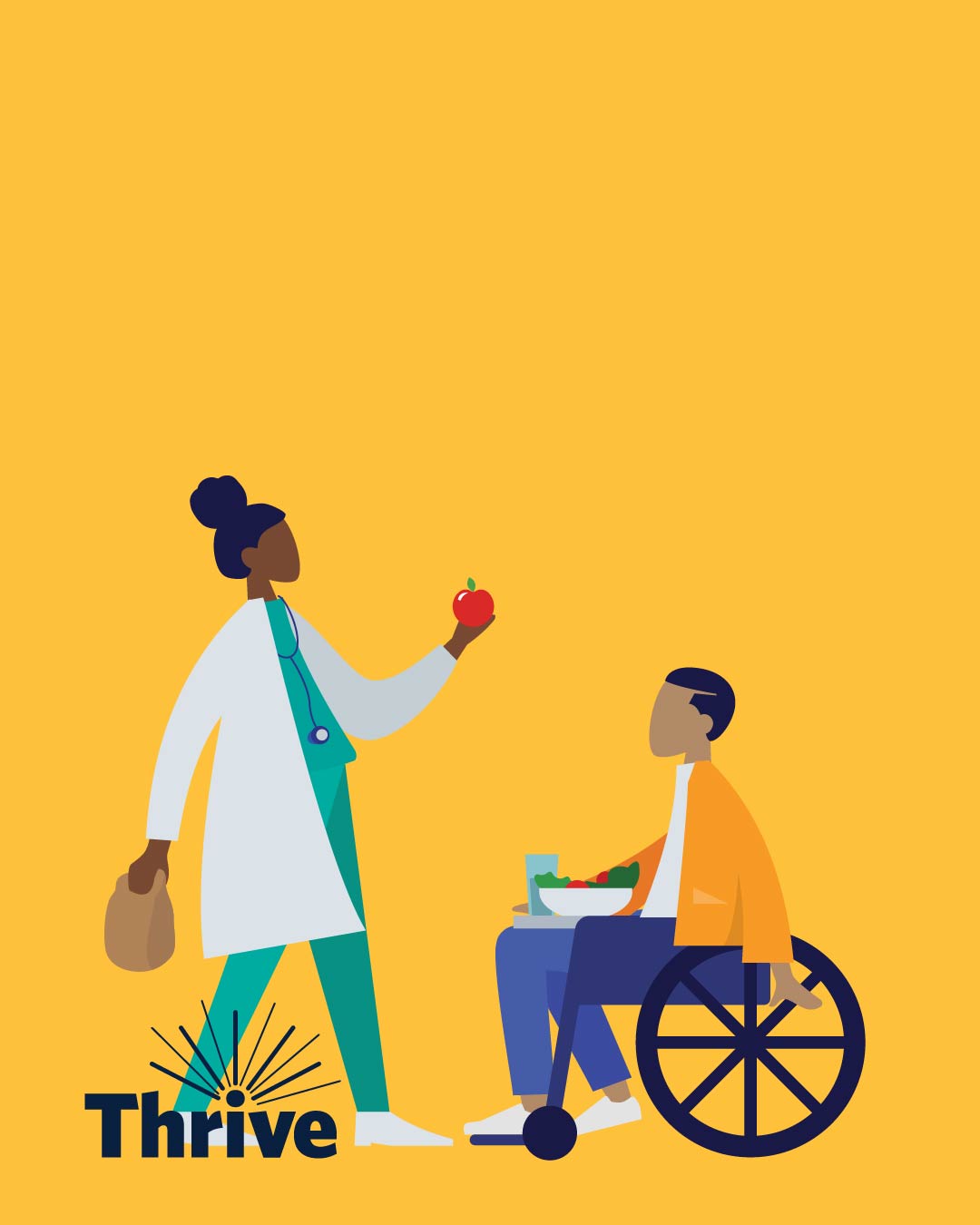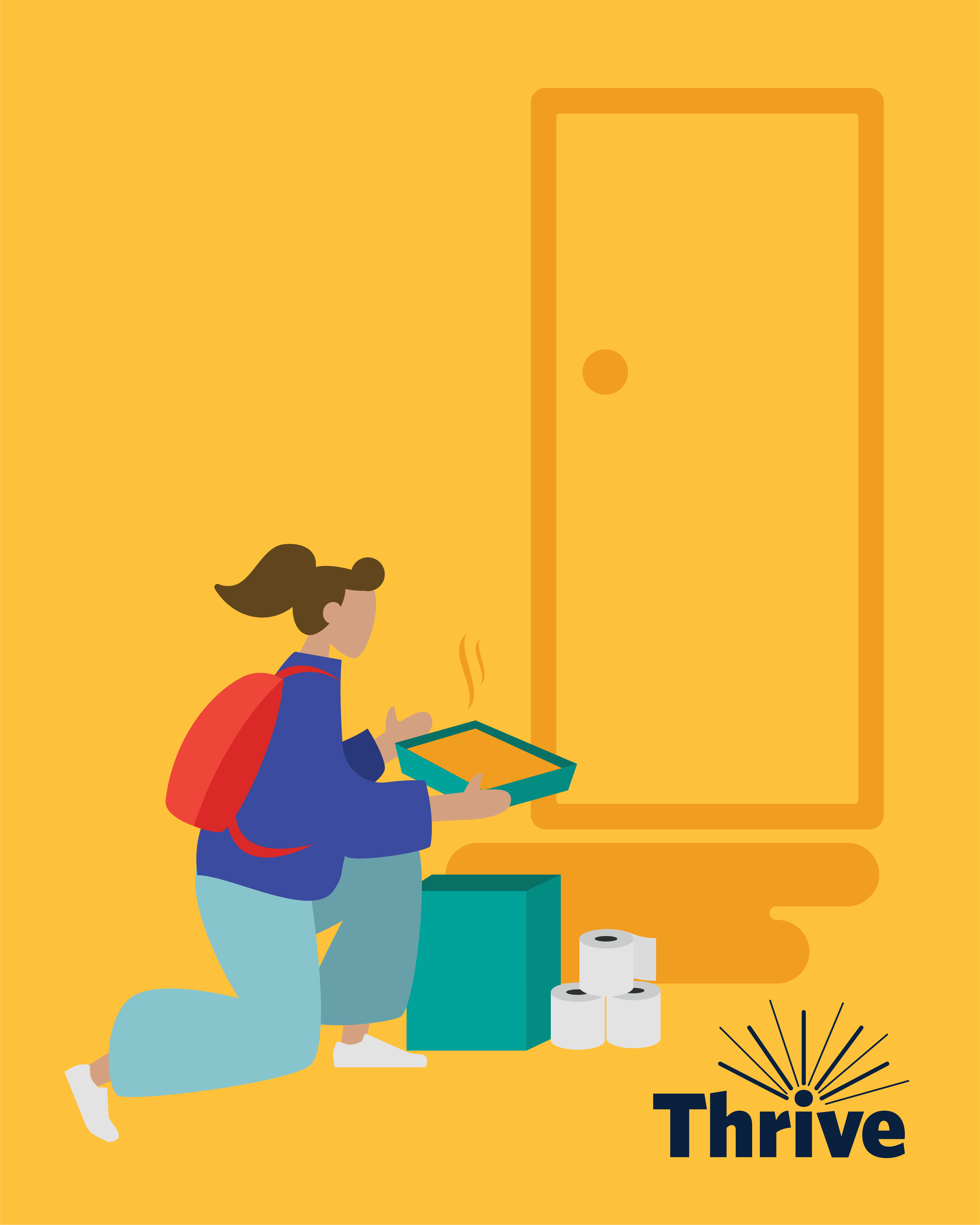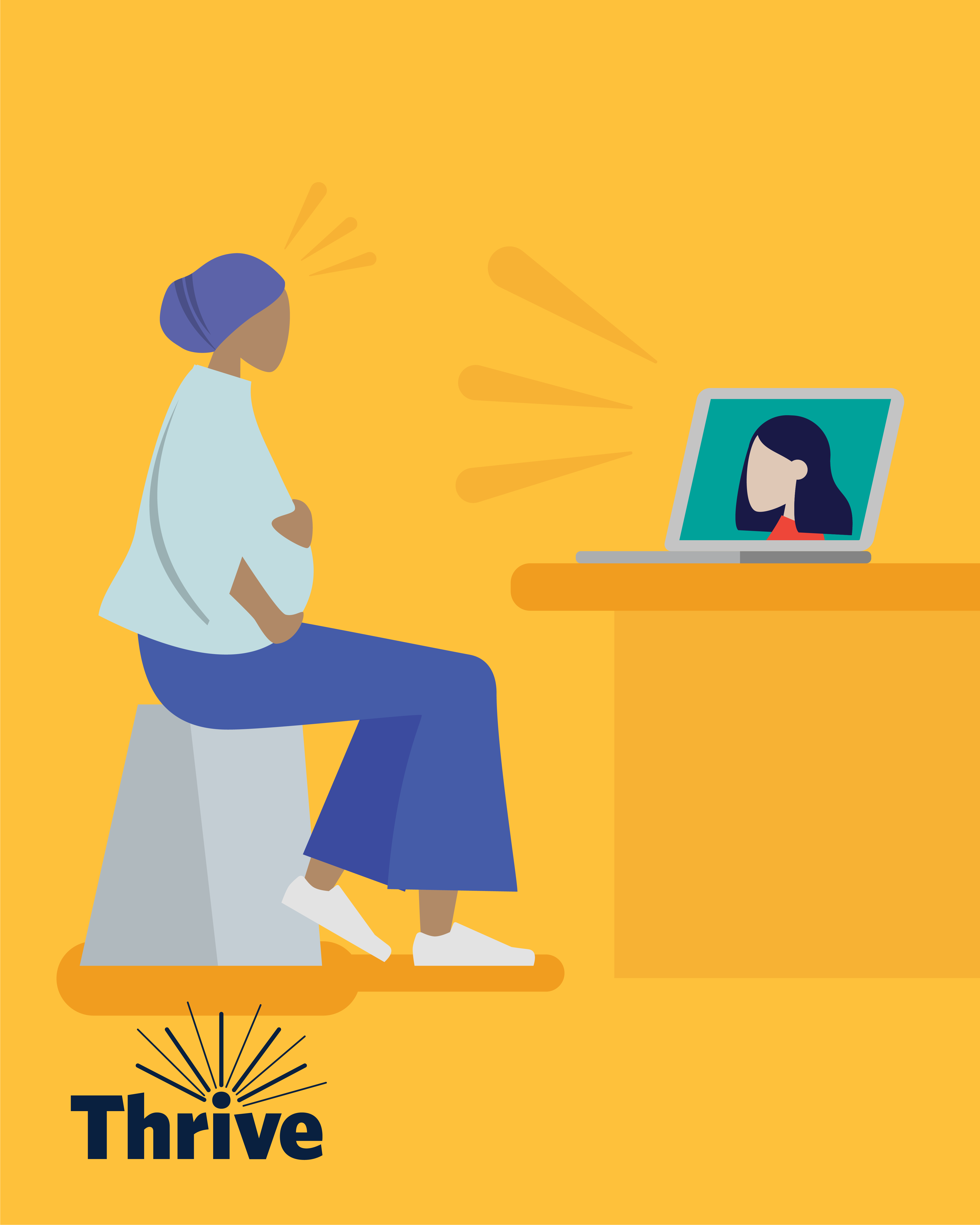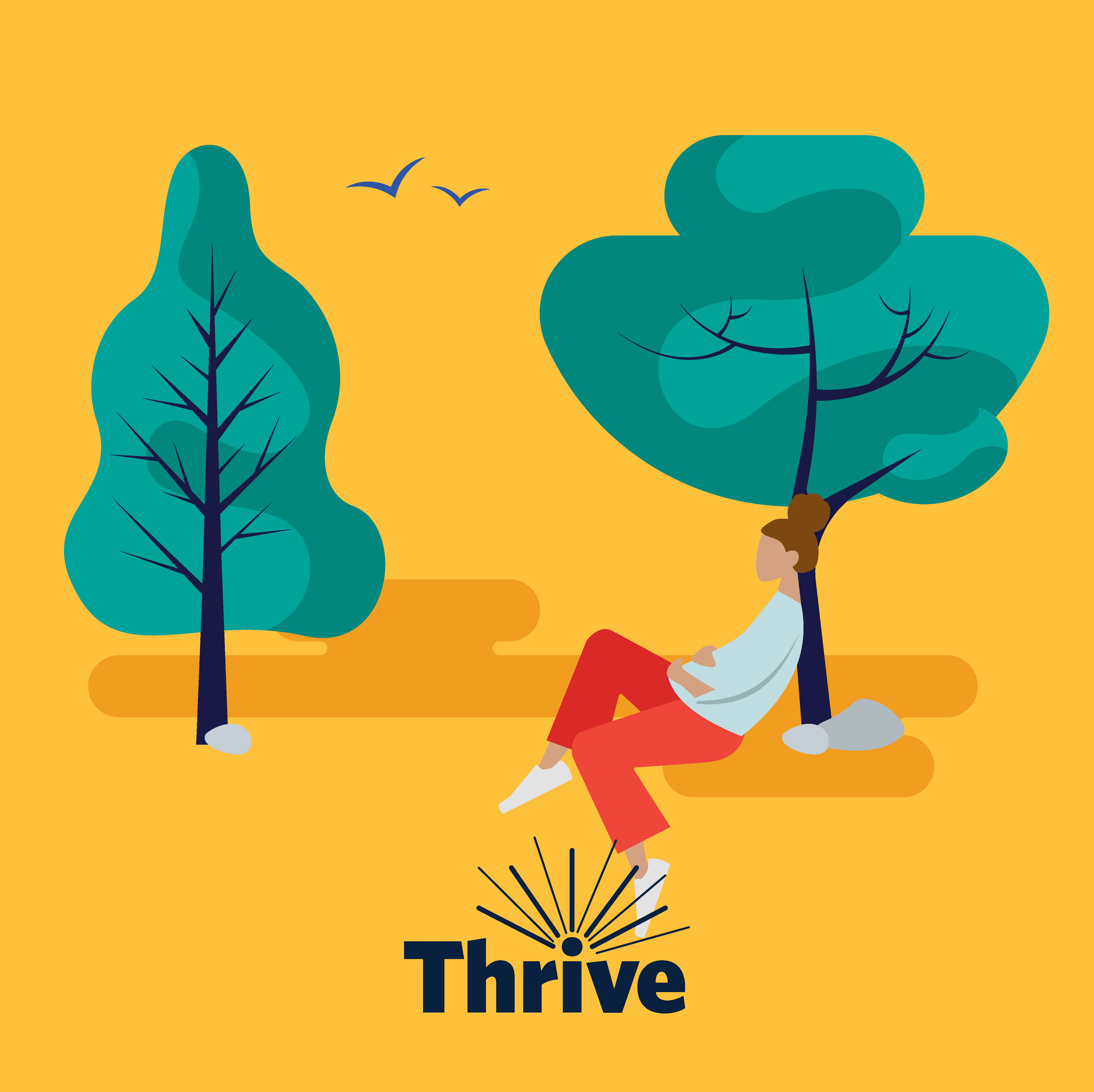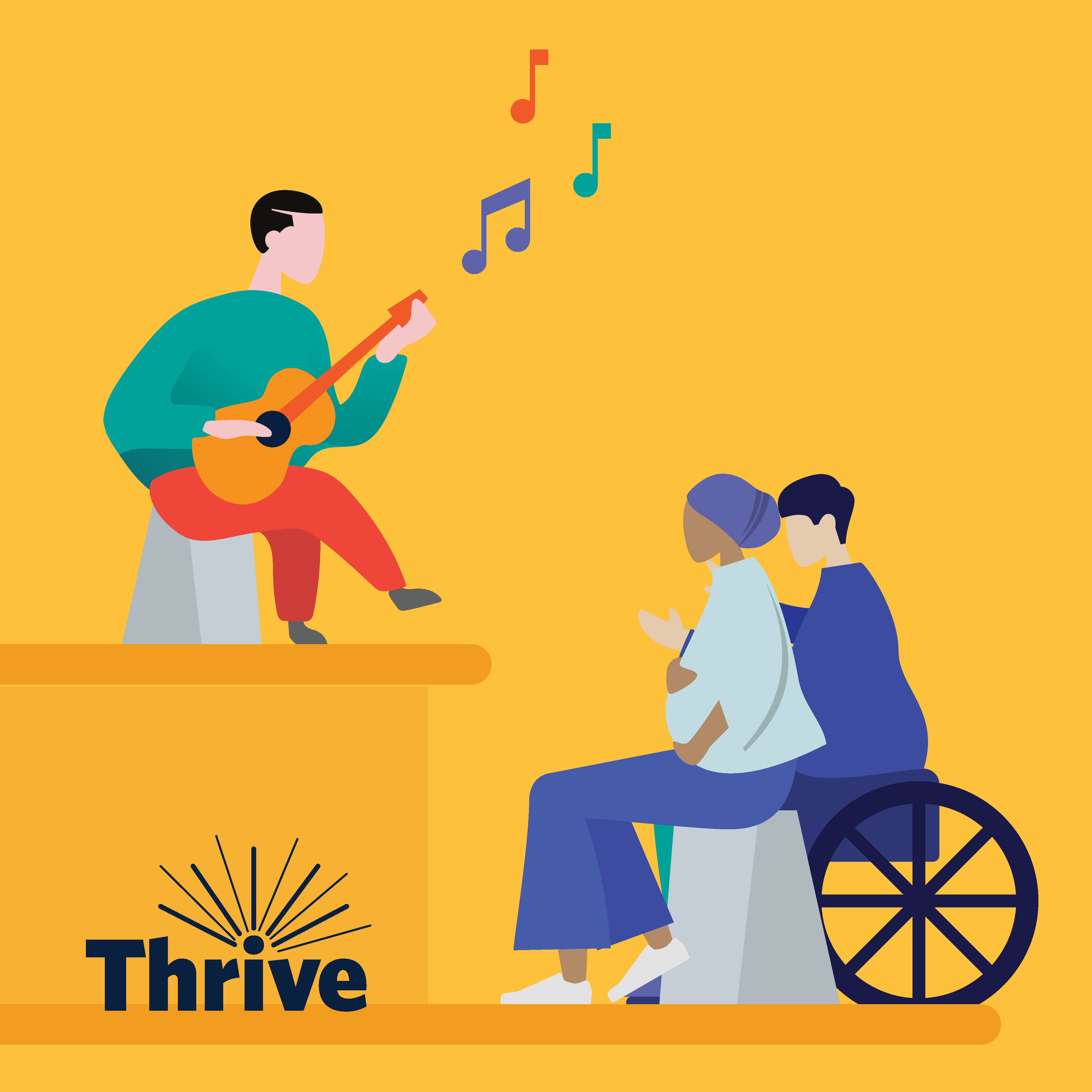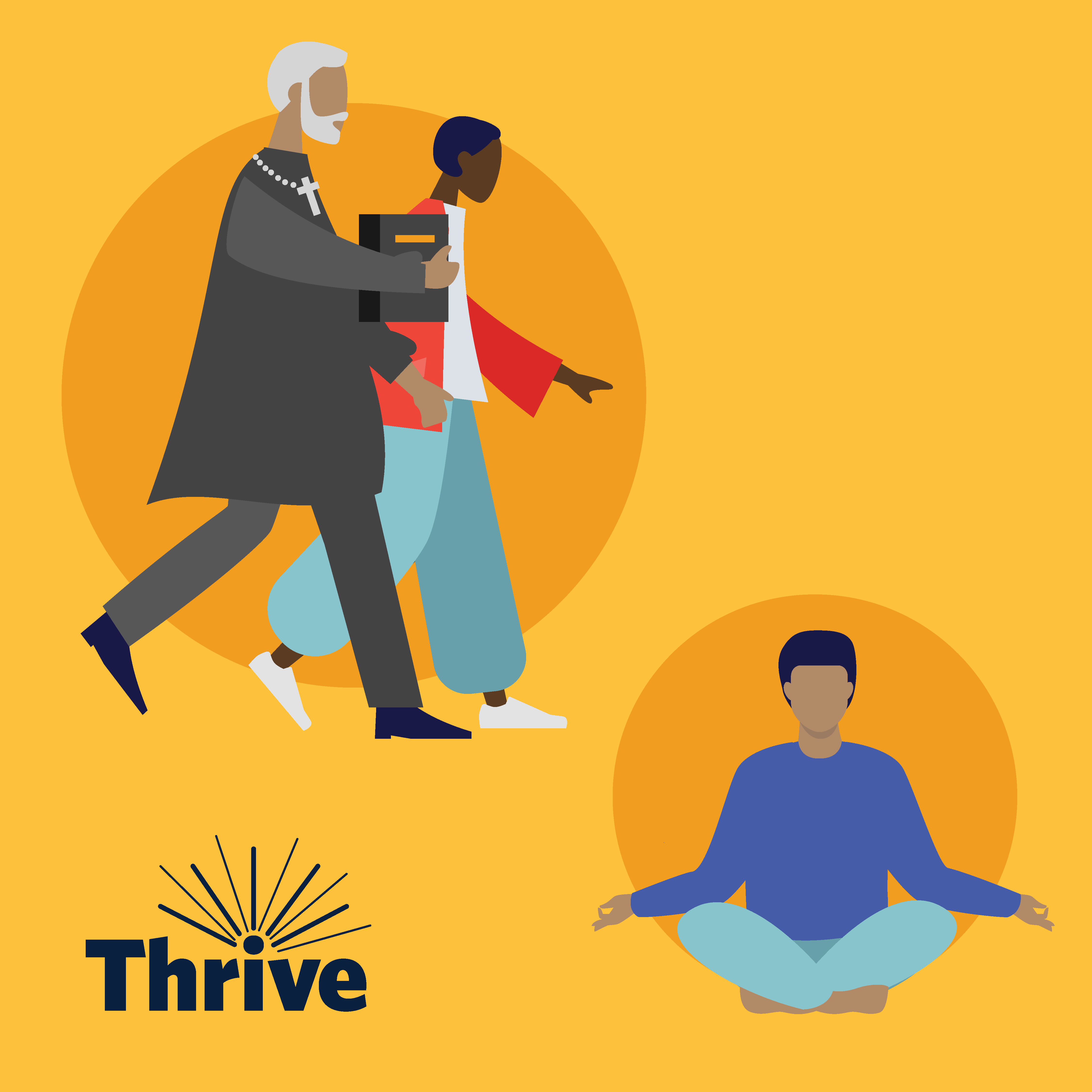There are many ways to foster and maintain good mental health. Research consistently points to five ways that can help promote a healthy mind. We call these the Thrive 5, and they are simple, easy-to-implement ways to help support your mental health.
The Thrive 5 Are:
And while these are oft-cited ways to learn to thrive, they are not the only ways. That's why we encourage you to think about the Thrive 5+. Read more about it below and check out the Thrive Events Calendar for activities happening across campus based on the Thrive 5 and more!
What is the Thrive 5+?
Mental health is diverse–and so are ways to support it. While the Thrive 5 are some of the most oft-cited ways to foster and maintain mental health, they are not the only ways. Mental health is different for everyone—and so are the ways to support it. Thrive 5+ acknowledges that what works to support some people, may not work for everyone. It is important to discover the things that help you build resiliency and cope during challenging times — whatever they may be.
For some it might be engaging in arts, culture or music, for others, meditation, or connecting with spirituality— whether that be through religion, meditation, or practicing mindfulness—might help. Many people find being in nature restorative and relaxing, while others practice gratitude. Engaging in cultural tradition can also be a great source of mental health support.
Whatever your path to mental health may look like, we hope that you will explore ways to support it at UBC—during Thrive month and beyond!
For a Thrive 5 poster that you can share with students, faculty or staff, click below:


